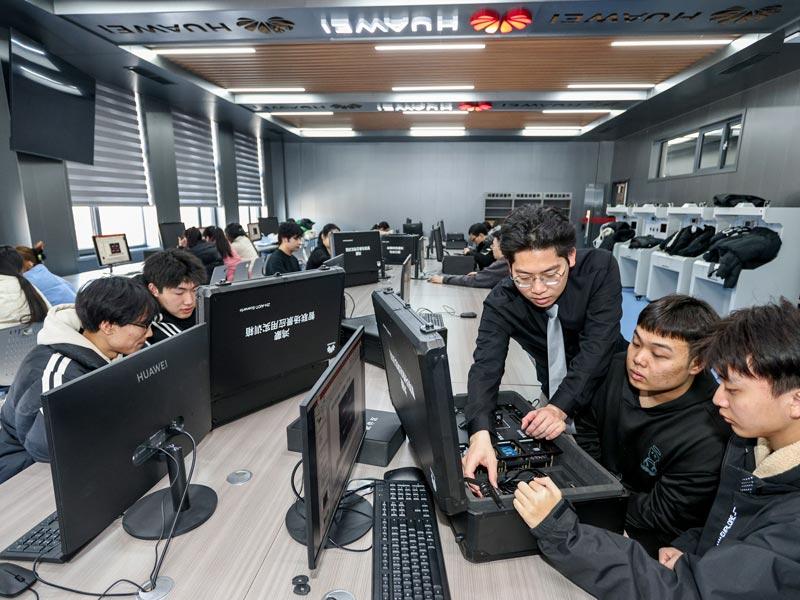
Enhancing education using digital tools and AI
As technology reshapes industries, students need digital and AI skills, regardless of their field of study, says Junfeng Li, vice-president and CEO of global public sector at Huawei. “AI will not only impact the education sector but also the society we are living in today,” said Li, during a keynote address at the 2025 THE Digital Universities Asia event.
The smart economy in China is growing at a faster pace than traditional sectors, and embedding the latest technology into the classroom is important for cultivating future talent. Recognising this, China’s Ministry of Education, along with nine other ministries, is promoting AI integration in higher education.
Huawei empowers universities to revolutionise education through digital technologies. It offers scenario-based education solutions that combine digital training, smart classroom, smart campus and research data management. These solutions are already being implemented on the ground. For example, with Huawei’s support, the Shenyang Institute of Technology (SIT) has deployed digital tools across all majors to develop foundational digital skills in students.
Traditional theoretical teaching can no longer meet industry demands for interdisciplinary talent. To bridge the gap between theory and practice, SIT has built 28 labs across six cutting-edge areas, such as AI, big data, HarmonyOS, cloud computing and 5G mobile communications. These labs allow students to master industry-leading digital technologies during their studies, nurturing talent to drive digital transformation across industries.

In the past, universities were tethered to a standard education model for all students, but AI opens the door to personalised education tailored to an individual’s needs and progress, said Li. However, educators need the right tools to implement personalised learning effectively. Huawei has partnered with Zhejiang Shuren University to introduce AI-powered lesson planning, intelligent question and answer systems and knowledge graph-based learning to support adaptive, individualised teaching.
In addition to enhancing pedagogy, university classrooms supported by digital technology enable students to stay connected in a rapidly changing society, said Li. Simply engaging with learning materials makes it difficult for students to develop the practical skills they will need after graduation. “It’s a big challenge because students are at university for four years and society is constantly changing and improving, especially in China. We need to adapt the skills they learn in the university so they can serve in society more easily and faster.”
Huawei has collaborated with Chongqing University to develop a five-year campus digitalisation roadmap to achieve 100 per cent network coverage and develop more than 200 technology-integrated courses. “We wanted to not only help improve the digital infrastructure of the university but also provide digital services to students,” Li said.
Improving institutional efficiencies and student experience is vital in the modern era, Li said. “If a student’s digital experience at university is bad, how can you expect them to have good digital skills when they graduate?”
The same is true of the research experience, Li said. Sometimes academics have access to high-powered computing, but students who undertake research do not. At Shanghai Jiao Tong University and Southeast University in Jiangsu, China, Huawei has provided inclusive AI research platforms, which enable all students and faculty to access computing resources and participate in scientific work. For example, Shanghai Jiao Tong University has built one of the world’s largest university-level computing platforms, serving over 900 research groups and 180 undergraduate and graduate courses. It enables cloud-based experimentation for thousands of students and faculty, supporting the training of large-scale models with a vast number of parameters – a leap from aspiration to reality.
“Huawei believes that digital infrastructure and AI tools will underpin the next era of higher education. It is committed to supporting universities in this journey, with a goal to not only deliver knowledge but also encourage practice, experimentation and confidence,” Li concluded.
Find out more about Huawei.

